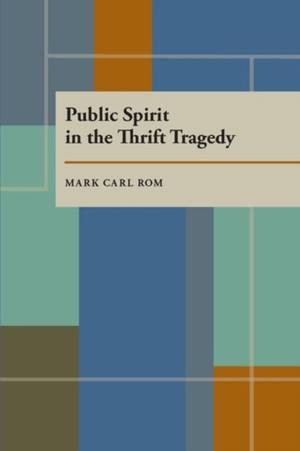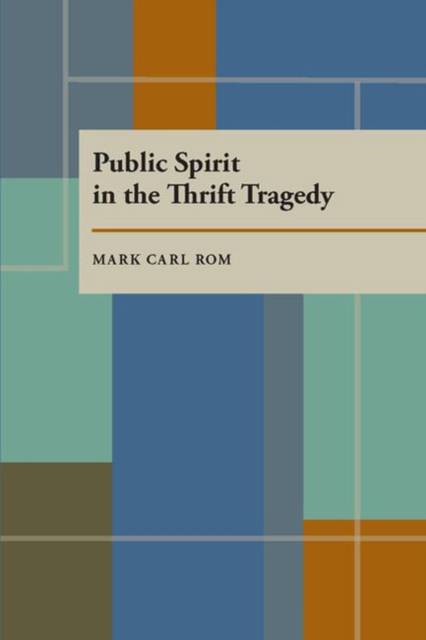
- Retrait gratuit dans votre magasin Club
- 7.000.000 titres dans notre catalogue
- Payer en toute sécurité
- Toujours un magasin près de chez vous
- Retrait gratuit dans votre magasin Club
- 7.000.0000 titres dans notre catalogue
- Payer en toute sécurité
- Toujours un magasin près de chez vous
Description
In this award-winning analysis, Rom examines the political causes of the "thrift tragedy" during the 1980s when the FSFIC failed spectacularly, and cost taxpayers an estimated $200 billion. Winner of the Harold Lasswell Award of the American Political Science Association
Spécifications
Parties prenantes
- Auteur(s) :
- Editeur:
Contenu
- Nombre de pages :
- 326
Caractéristiques
- EAN:
- 9780822956006
- Date de parution :
- 15-05-96
- Format:
- Livre broché
- Dimensions :
- 150 mm x 230 mm

Les avis
Nous publions uniquement les avis qui respectent les conditions requises. Consultez nos conditions pour les avis.






